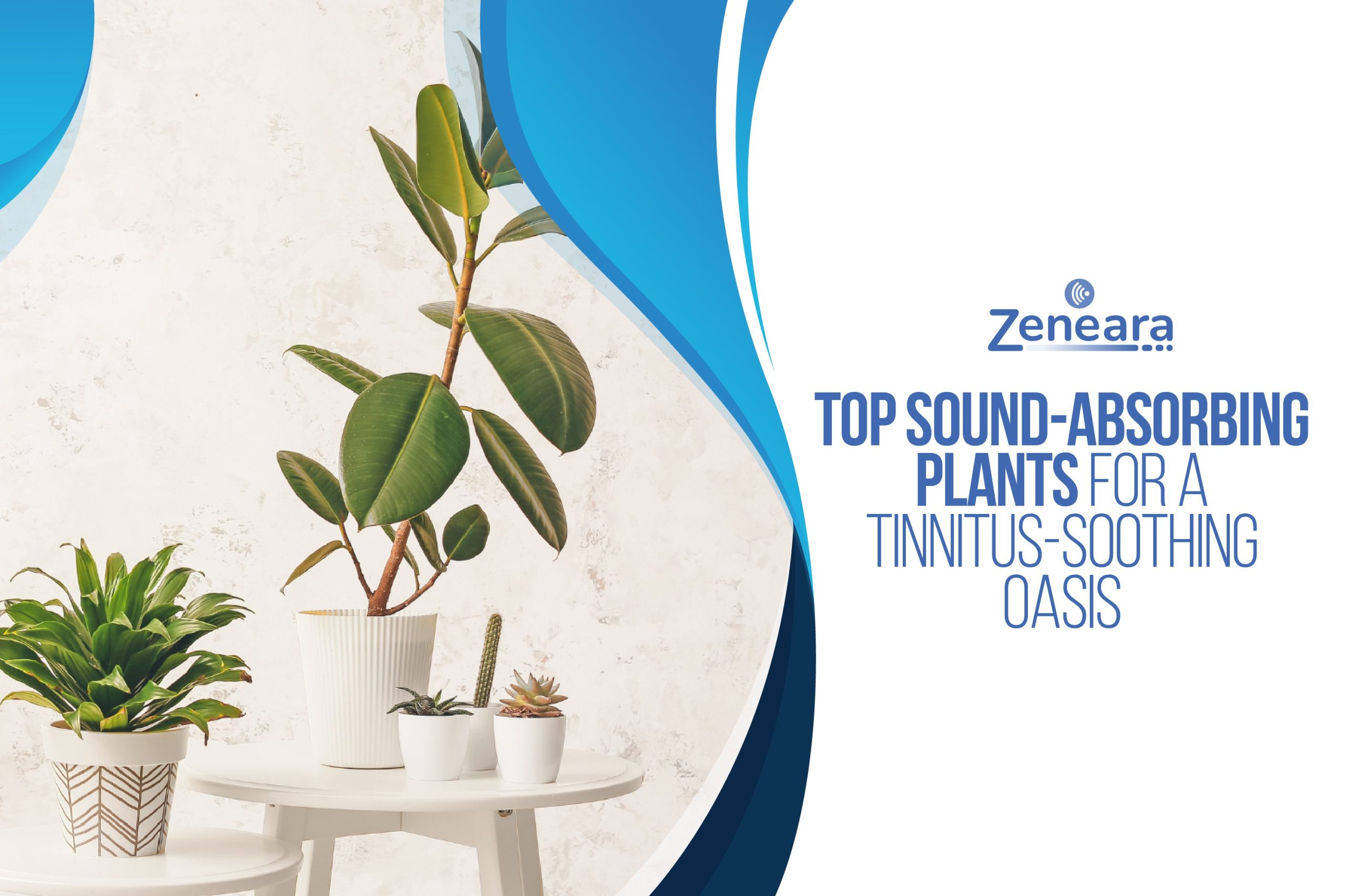Hey, it’s James Barrett here!
I recently stumbled upon a fascinating study that got me thinking about our daily battle with noise.
Did you know that in 2014, researchers found that the average person loses 86 minutes daily due to noise distractions?
Think about your own home. The neighbor’s lawn mower on a Saturday morning, the TV blaring from the next room, or the constant hum of appliances.
For those with tinnitus, these everyday sounds can feel amplified, making peaceful moments more difficult to come by.
But here’s where it gets interesting…
As I dug deeper, I discovered that designers and architects have been turning to an unexpected ally in the fight against noise: plants.

Yes, you heard that right – our leafy friends aren’t just pretty to look at. They’re nature’s own sound absorbers!
Studies have shown that both potted plants and living green walls can effectively reduce noise pollution in our living spaces. It’s like having nature’s own noise-canceling system right in your home.
But here’s the kicker – these green guardians do more than just muffle sound.
Surrounding ourselves with plants, natural light, and organic textures can significantly improve our overall well-being. This connection with nature can boost our mood, relieve stress, and even help enhance the quality of sleep.
And let’s face it, who couldn’t use more of that?
Before we discuss the best plants for creating your own peaceful oasis, I’d love to hear from you.
What's your biggest challenge when finding quiet in your home?
Is it external noise, or perhaps the internal symphony of tinnitus?
Share your experiences by replying to me.
Are you ready to discover how we can transform your living space into a lush, sound-absorbing haven?
Let’s explore some top plants that can help tame that tinnitus and bring more serenity into your daily life…
Lady Palms and Cast Iron Plants
These plants are ideal for areas with limited natural light, such as interior rooms or office spaces with few windows. Their ability to thrive in low-light conditions combined with their dense, lush foliage makes them excellent at absorbing sound.
This can significantly diminish background noise, making spaces quieter and reducing the distractions caused by ambient sounds. This is particularly beneficial for individuals with tinnitus, as it minimizes the aggravation caused by persistent noise, facilitating a more focused and serene environment.
Schefflera Amate
Known for its broad, glossy leaves, the Schefflera Amate is particularly effective in bright, well-lit spaces where it can perform dual decoration and noise reduction functions.
The large surface area of its leaves catches and diffuses sound waves, which helps lower the overall sound level in lively environments. This reduction in ambient noise can alleviate the symptoms of tinnitus, making this plant a stylish and functional addition to any room.
Moss Walls and Living Walls
These vertical gardens do more than beautify a space; they serve as natural sound barriers. Their versatility in design and placement makes them suitable for adjusting sound levels in various areas of a home or office.
Moss walls and living walls create a dynamically quieter space by absorbing and blocking noise, which can be particularly soothing for those sensitive to noise.
Large Leaf Plants
Plants like Strelitzia Nicolai, Ficus Lyrata, Dracaenas, and various palms make a dramatic impact not only visually but also acoustically. Their substantial mass and height allow them to act as natural sound barriers.
Their large leaves help scatter and absorb sound waves, decreasing noise pollution and contributing to a more tranquil atmosphere, aiding concentration and relaxation.
Smaller Plants
Compact plants such as Sansevierias, ZZ Plants, and Aglaonemas are more than just space-fillers. These plants can significantly enhance a room’s ability to dampen noise when grouped.

Their thick, dense foliage effectively absorbs high-frequency sounds, making them perfect for placement in areas where space is at a premium but noise reduction is needed.
Together, these plants offer a range of options for integrating natural elements into living spaces and workplaces. They enhance aesthetic appeal and improve acoustic comfort, which is especially beneficial for those with tinnitus.






